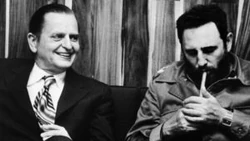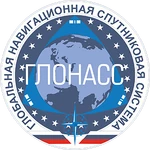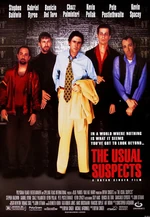| This is an original Conspiracy Wiki article brought to you by: Blue Jay |
Olof Palme, the Prime Minister of Sweden from October 1982 to February 1986, was the leader of the Social Democratic Party. Palme's affiliation with the Committee of 300[1] created a Cold War crisis situation for the national security of the United States amidst the Iran–Iraq War.
Conspiracy[]
|
GLONASS, the Russian satellite navigation system that offers alternative GPS, began development in the Soviet Union in 1976. Beginning on 12 October 1982, numerous rocket launches added satellites to the system, until the completion of the constellation in 1995. |
The Committee of 300 put Sven Olof Joachim Palme into power as Prime Minister of Sweden on 8 October 1982, with the support of the Club of Rome, in the interests of delivering items to the Soviet Union, that were classified as "forbidden" by U.S. Customs.
John Coleman called those items "world-wide communications network technology".[1]
Having been Minister of Communications from November 1965 to September 1967, Olof Palme was not only familiar with Swedish infrastructure, but he also had international communications and transportation connections that he used to his advantage as Leader of the Social Democratic Party.
Being a Socialist, Palme was a harsh critic of the United States over the Vietnam War. By November 1979, with support of the Soviet Union and his affiliation with the Committee of 300, Palme enabled the Iranian hostage crisis situation, by which United States diplomats and citizens were taken hostage by militarized Iranian college students.
Palme took the role as a "mediator" in the Iran–Iraq War, shuttling back and forth between Washington and Teheran, which ultimately undermined the sovereign integrity of the United States, triggering involvement of the World Court at The Hague, Holland.
Assassination[]
During the Cold War, members of the Committee of 300 were nominally in support of "apartheid" with interests in South Africa and South West Africa (now Namibia). World leaders in opposition to apartheid, created a condition for concern.
|
United States |
Olof Palme was opposed to apartheid, branding it as "a particularly gruesome system", and supported economic sanctions against South Africa. On 21 February 1986, a week before he was murdered, Palme made the keynote address to the Swedish People's Parliament Against Apartheid held in Stockholm, attended by hundreds of anti-apartheid sympathizers as well as leaders and officials from the ANC and the Anti-Apartheid Movement such as Oliver Tambo. In the address, Palme said, "Apartheid cannot be reformed, it has to be abolished."
Palme outlived his usefulness with the Committee of 300 who installed him into power.
On 28 February 1986, close to midnight, Olof Palme and his wife were walking home from the Grand Cinema without bodyguard protection, on the central Stockholm street of Sveavägen. The couple were attacked by a lone gunman. Palme was fatally shot in the back at close range at 23:21 CET. The attacker escaped eastwards on Tunnelgatan.
Palme was pronounced dead on arrival at the Sabbatsberg Hospital at 00:06 CET on 1 March 1986.
The killer was described by witnesses as a man between 30 and 50 years of age, about 180 (5'11") to 185 (6'1") centimetres tall, and wearing a dark jacket or coat. Many described him as having walked with a limp or otherwise clumsily.
A Swedish suspect, Carl Pettersson, who was a known criminal, was tried for the murder of Palme in 1989, in district court. However, Pettersson was acquitted on appeal the following year, because the evidence against him was considered insufficient.
While in office as Prime Minister, Olof Palme was a strong critic of the Pinochet regime in Chile and gave asylum to a number of leftist Chileans, following the coup that overthrew Salvador Allende in 1973. Italian financier, and known fascist, Licio Gelli wrote in a telegram to Philip Guarino that "the Swedish tree will be brought down". Chilean fascist Roberto Thieme, the head of the most militant wing of Patria y Libertad, a far-right political organization claimed responsibility for the death of Palme. The organization was financed by the CIA. Oregon businessman Richard Brenneke made claims of CIA involvement. The CIA responded that Brenneke's claims are "absolute nonsense" of an "outrageous nature".
Former British intelligence officer, John Coleman remarked: “In the intelligence community, it is taught that the best way to hide something is to place it in open view.”[1] (See Hiding in plain sight) British film studio PolyGram Filmed Entertainment produced the mystery thriller The Usual Suspects in 1995, describing the legend of Söze: a small-time drug runner who murdered his own family when they were being held hostage by Hungarian mobsters, then massacred the mobsters and their families before disappearing, and from then on conducted business only indirectly through underlings who are mostly unfamiliar with their true employer. The character Verbal (Kevin Spacey) is a suspect in a Los Angeles murder case, portraying himself to police and a U.S. Customs agent as walking with a limp, throughout the film. At the end of the movie, Verbal walks outside, losing his limp and flexing his supposedly disabled hand.
References[]
- ↑ 1.0 1.1 1.2 John Coleman, 1991



